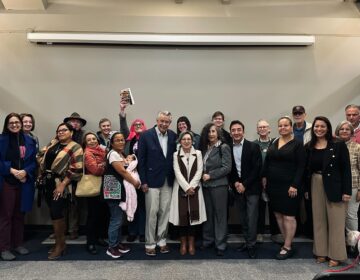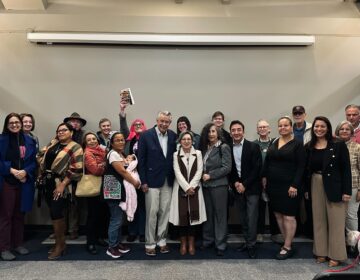Philadelphia’s Carnaval de Puebla makes a grand return
In a flurry of colors and feathers, Philadelphia's Carnaval de Puebla returned to Washington Avenue for a 12th year on Sunday.
-
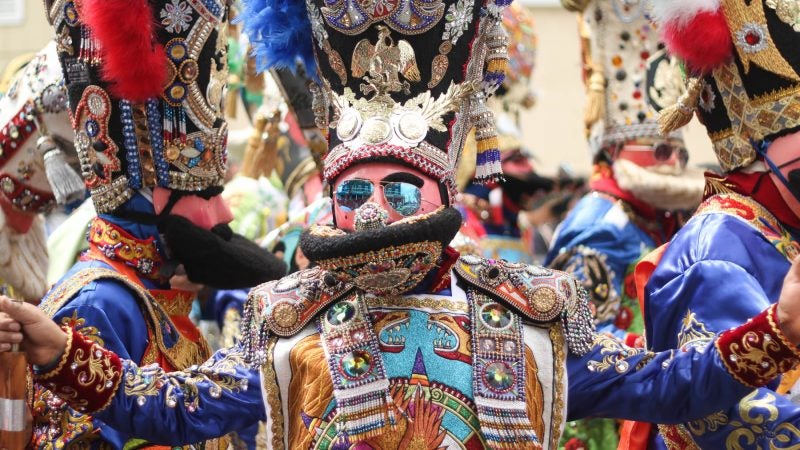
The elaborate costumes of the annual Carnaval de Puebla draw comparisons to the Mummers. (Angela Gervasi for WHYY)
-
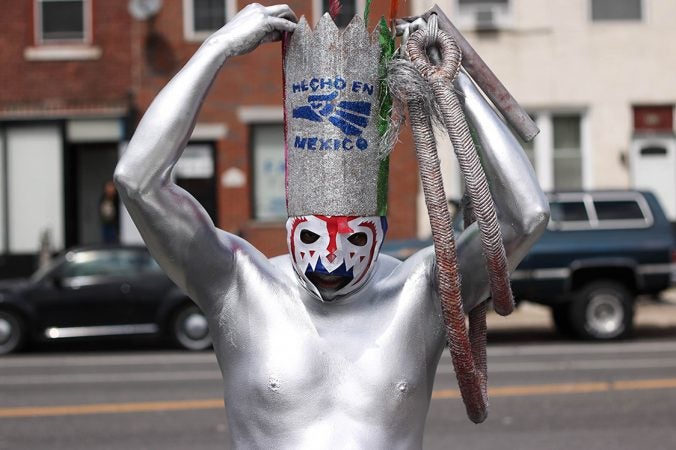
The parade has its origin in Huejotzingo, a town in Puebla in which a Mexican army defeated French soldiers on May 5, 1862. (Angela Gervasi for WHYY)
-
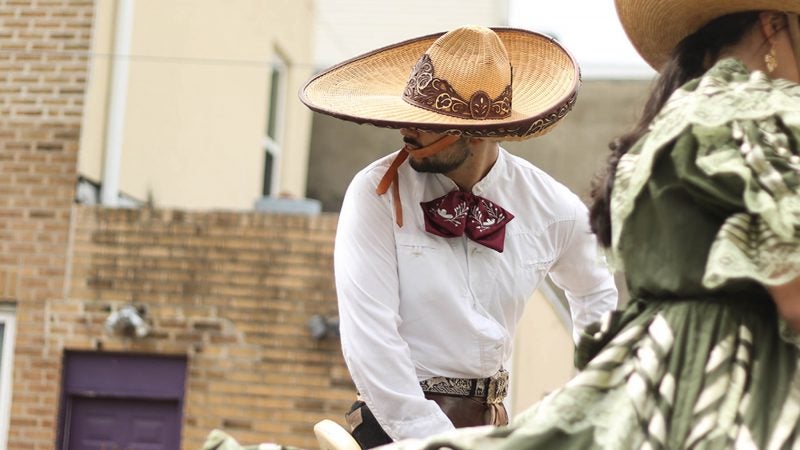
Participants in the Carnaval de Puebla dress as French and Spanish soldiers while riding through South Philadelphia on horseback to commemorate the 19th century Battle of Puebla. (Angela Gervasi for WHYY).
-
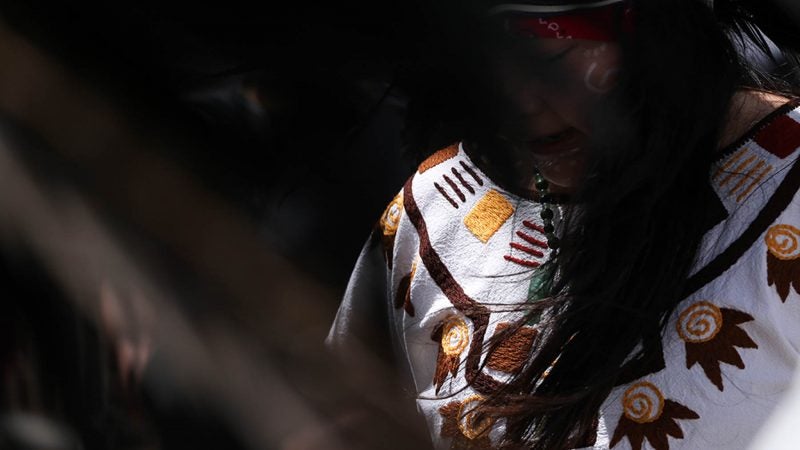
Participants dance in costume on Washington Ave. to celebrate the annual Carnaval de Puebla. (Angela Gervasi for WHYY)
-
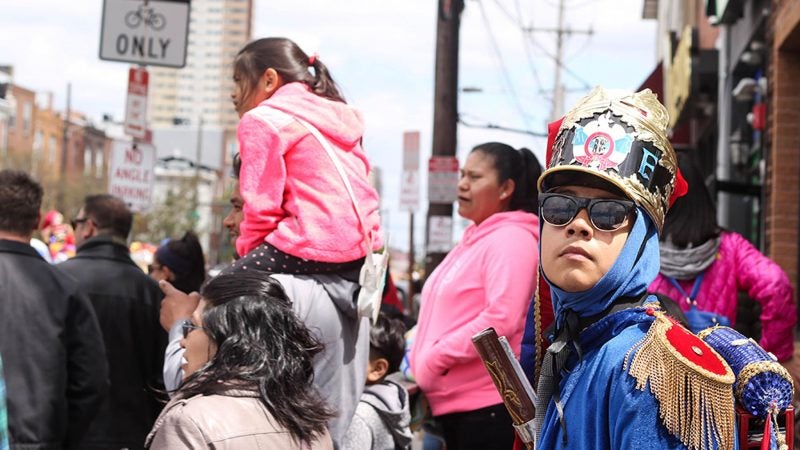
El Carnaval de Puebla, a huge street festival, takes place in the Italian Market section of South Philadelphia, which houses a growing Latino population. (Angela Gervasi for WHYY)
-
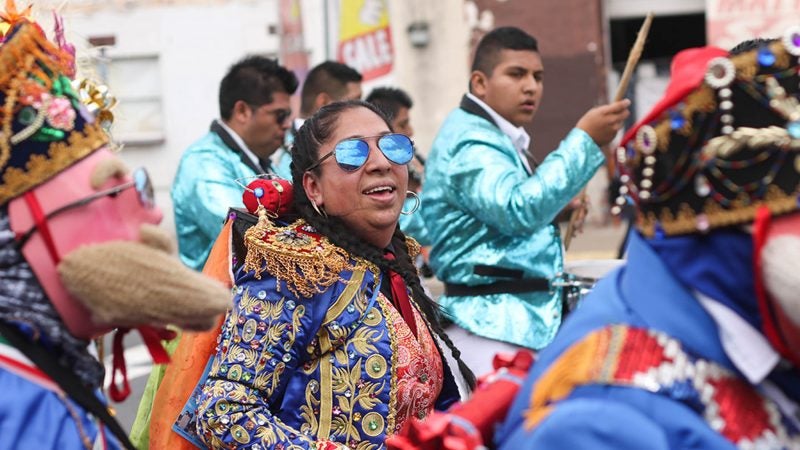
The festival returned for its 12th year, after a hiatus taken due to an increase in immigration raids. (Angela Gervasi for WHYY)
-
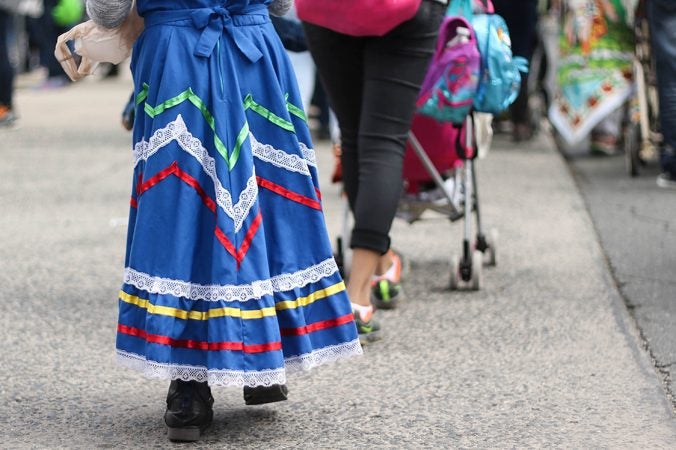
Men, women and children march in the festival, which originates in the Mexican state of Puebla. (Angela Gervasi for WHYY)
-
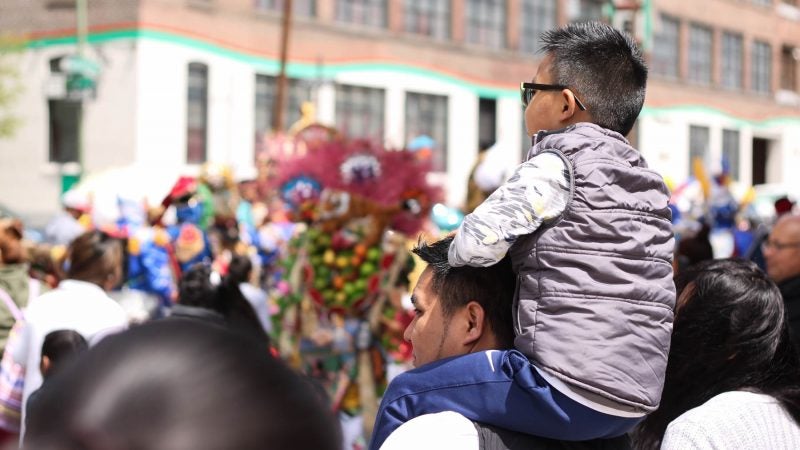
The annual Carnaval de Puebla brings as many as 15,000 people to South Philadelphia. (Angela Gervasi for WHYY)
-

Slicked in silver body paint, performers march down Washington Avenue, cracking whips. The costume is said to symbolize the devil being let loose. (Angela Gervasi for WHYY)
-
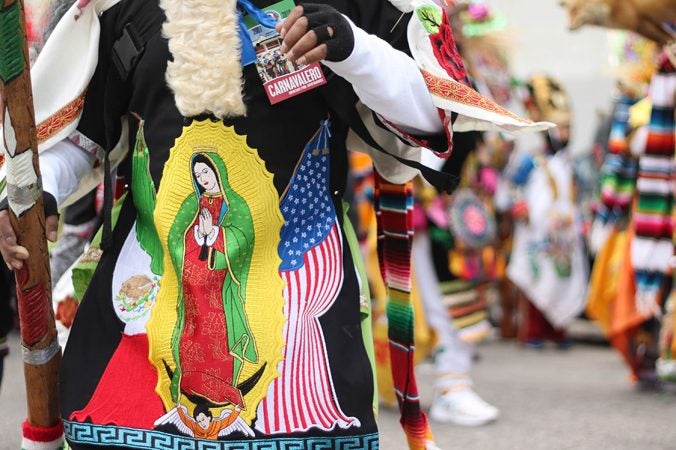
The Virgin of Guadalupe, an iconic image in Mexican culture, adorns the costumes of carnavaleros, the performers in the yearly festival, Carnaval de Puebla. (Angela Gervasi for WHYY)
-
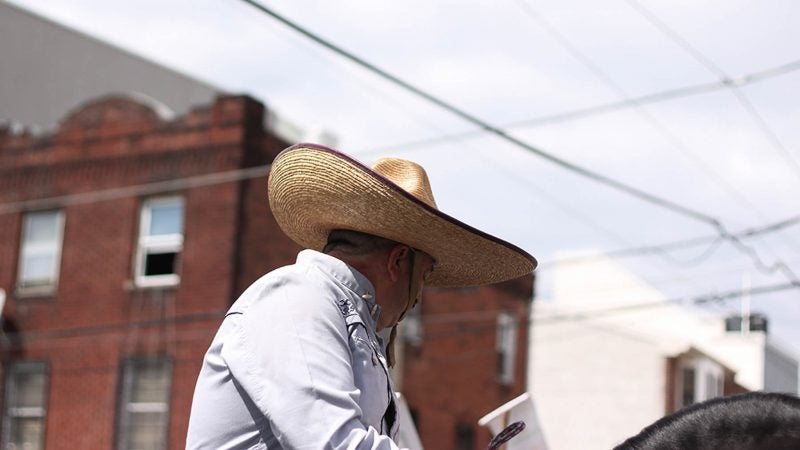
To commemorate the 19th century Battle of Puebla, participants in the Carnaval dress as French and Spanish soldiers while riding through South Philadelphia on horseback. (Angela Gervasi for WHYY)
-
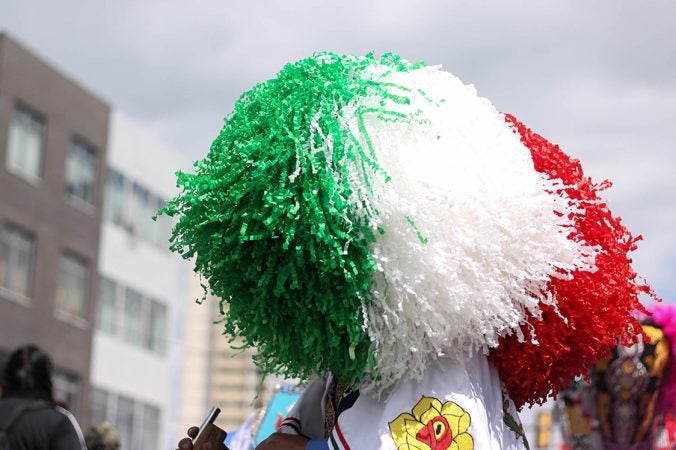
Carnavaleros celebrate in bearded masks and embroidered Suits, draping themselves in the colors of the Mexican flag. (Angela Gervasi for WHYY)
In a flurry of colors and feathers, Philadelphia’s Carnaval de Puebla returned to Washington Avenue for a 12th year on Sunday.
The festival, rooted in the Mexican state of Puebla, can be a bizarre sight. The performers, called carnavaleros, adorn themselves in bearded masks and embroidered gowns.
Men slicked in silver body paint crack heavy, resonating whips onto the street. Bridled horses stride through the South Philly neighborhood, while participants can be spotted carrying anything from a stuffed coyote to a live chicken.
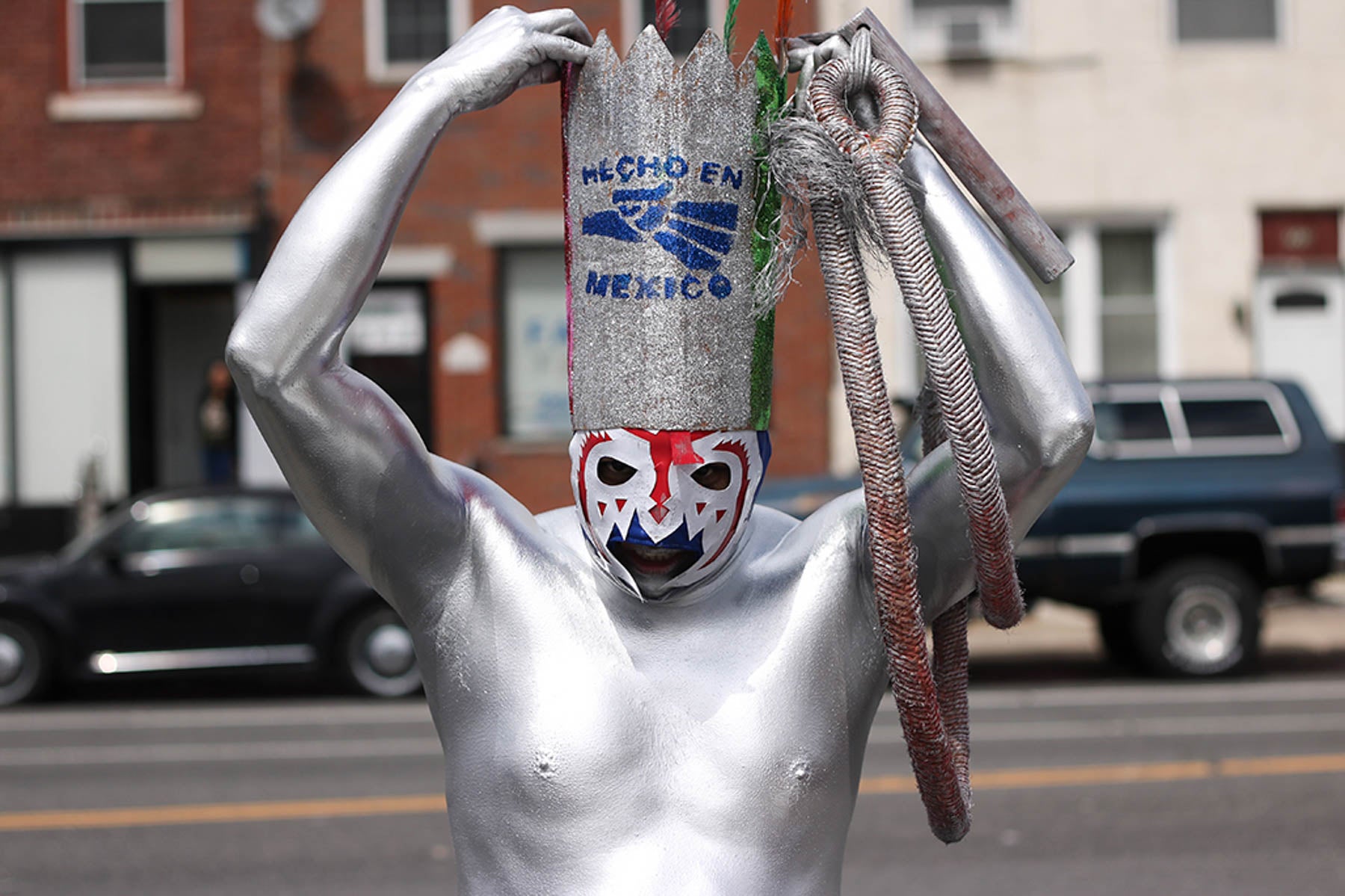
The sounds of trumpets and tubas echo through the streets. The festivities attract thousands of people to the area.
It’s a sharp contrast to last year’s Carnaval, which didn’t officially happen. In 2017, the festival’s organizers cancelled in response to an increase in raids by the Immigration and Customs Enforcement agency (ICE).
The rate of immigration-related arrests has grown significantly since then. Still, Edgar Ramirez, an organizer of the Carnaval, said the need to continue the parade was great. “We have to return to the everyday,” Ramirez said days before the festival.
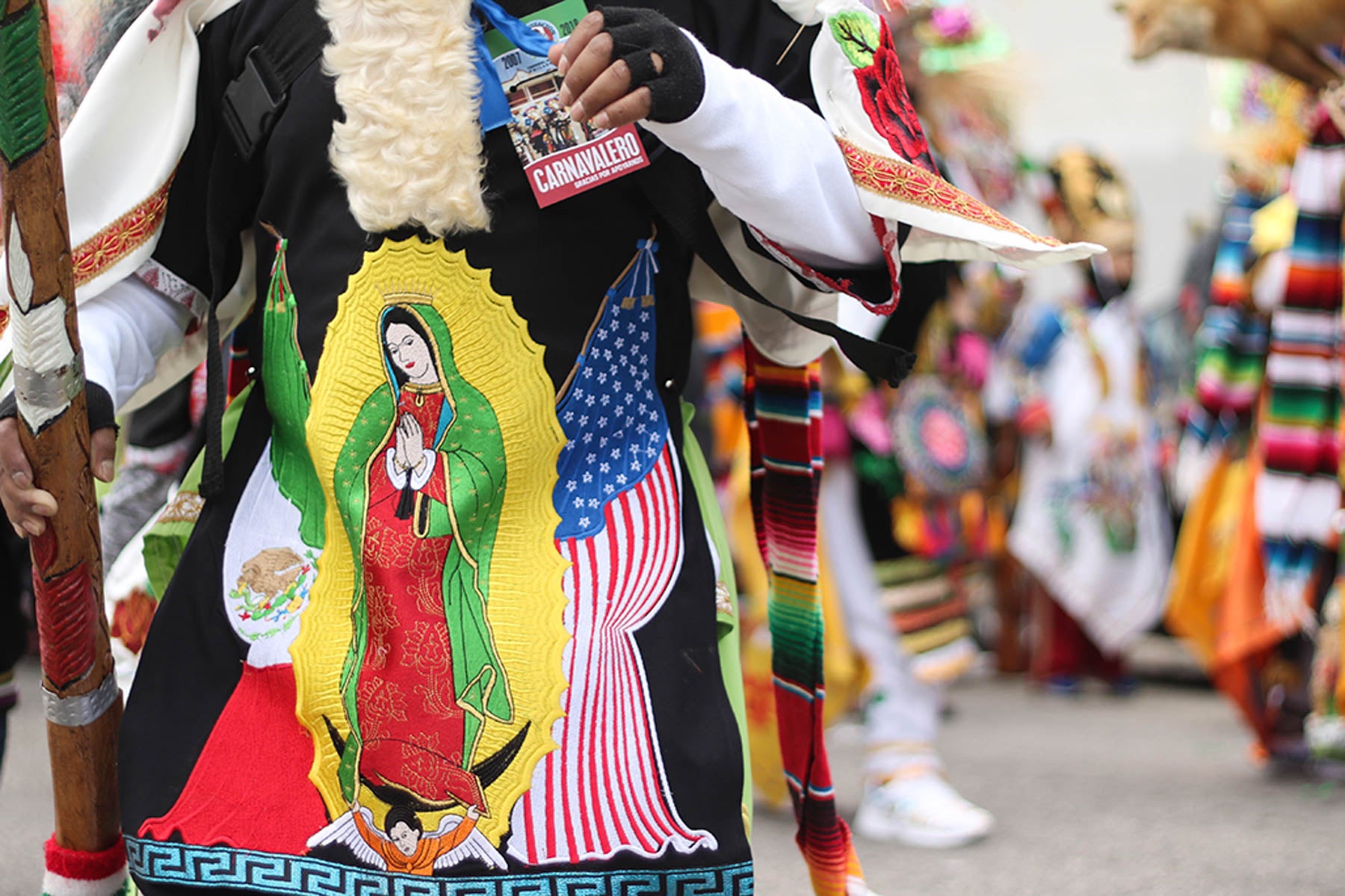
Miguel Àngel Huilotl has been a carnavalero for about five years. For him, the Carnaval is a way to remain connected to Mexico.
“We’re here, far from our country. But still, we’re close,” said Huilotl in Spanish. A skullcap embellished with the word “MEXICO” clung to his head as he prepared a torta behind an open car trunk. “We feel close.”
WHYY is your source for fact-based, in-depth journalism and information. As a nonprofit organization, we rely on financial support from readers like you. Please give today.


